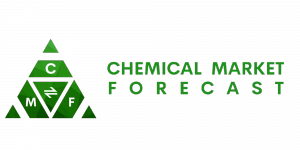The European Lubricants Market is estimated at around USD 36 Billion in 2020 and is expected to grow at 0.7%
The key drivers in European Lubricants market are introduction of Electric Vehicles autonomous vehicles and the drive for sustainability.
The European Lubricants Market is regarded as a mature market vertical with a market value of USD 36 Billion in the year 2020. The total European Lubricants Market is expected to grow with a CAGR of 0.7% during the forecast period 2021-2029. The market has zero growth or some decline but it offers niche opportunities for new entrants. Lubricants Market in UK, France, Germany, Spain, and Italy account for 50% of the Lubricants demand within Europe and roughly 8% of the Global Lubricants demand. Moreover, these nations have the highest value of sold industrial production within Europe. The Western European Lubricants Market is larger than that for Eastern Europe.
European Electric vehicles fleet acquired a value of 11% in the year 2020 from 3.6% in 2019. As of 2020, 75% of new vehicle registrations in Norway were BEVs and PHEVs. Iceland and Sweden account for the second largest markets for EVs within Europe.
As of 2019, the EU Lubricants market was a net exporter of API Group I base oils and an importer of API Group II and Group III. Europe exports roughly 65-70% of its API Group I base oil stocks. Some of the key importers of European Group I Base oil are Africa and the Middle East. Approximately 14-22% of Group II and Group III base oils are imported into Europe.
“The number of refinery conversions to biofuels is expected to increase during the forecast period. The growing adoption of sustainable practices is expected to drive this growth. This initiative would help optimise the capital cost investment.”
-Gopika Menon (Co-Author)
Analyst, Chemical Market Forecast
The onset of COVID-19 led to an economic downturn, due to the imposed national lockdowns. Reduced demand for transportation fuels caused several refiners to cut production or mothball capacity. Some base oils manufacturing plants in Europe have subsequently closed permanently, despite improved economic activity.
There is a longer-term trend for refiners to convert crude oil refineries to bio-refineries, to produce chemical components from plant sources Major regional and global players, such as Total, BP, Eni, and Neste have increased their production capacity for biofuels in 2021. The shares for Neste increased by a value of roughly 55% since the strategic decision.
The European Base oils market is relatively well-advanced in migrating from API Group I to Group II and Group III Base oils. The change in market dynamics is mainly due to the enhanced performance demands of modern internal combustion engines for cars, vans, trucks, buses etc., the lubricants for which require Group II and/or Group III base oils or synthetic base fluids not directly derived from crude oil. On the supply side, plants producing Group I base oils are often integrated with refineries or have dedicated sources of raw material supply. These plants are more susceptible to variations in the transportation fuels market than those producing Group II or Group III oils. The growth in robust IC Engine technology and the scrapped automotive market is expected to be one of the key drivers for the crankcase lubricants market.
The report is published by Chemical Market Forecast, a brand that specialises in Chemical Markets.
John S
Chemical Market Forecast
+91 22 4122 6006
John.s@strategypartnersglobal.com
Visit us on social media:
Facebook
LinkedIn
Chemical Market Forecast- Chemical Market Specialist
Legal Disclaimer:
EIN Presswire provides this news content "as is" without warranty of any kind. We do not accept any responsibility or liability for the accuracy, content, images, videos, licenses, completeness, legality, or reliability of the information contained in this article. If you have any complaints or copyright issues related to this article, kindly contact the author above.

